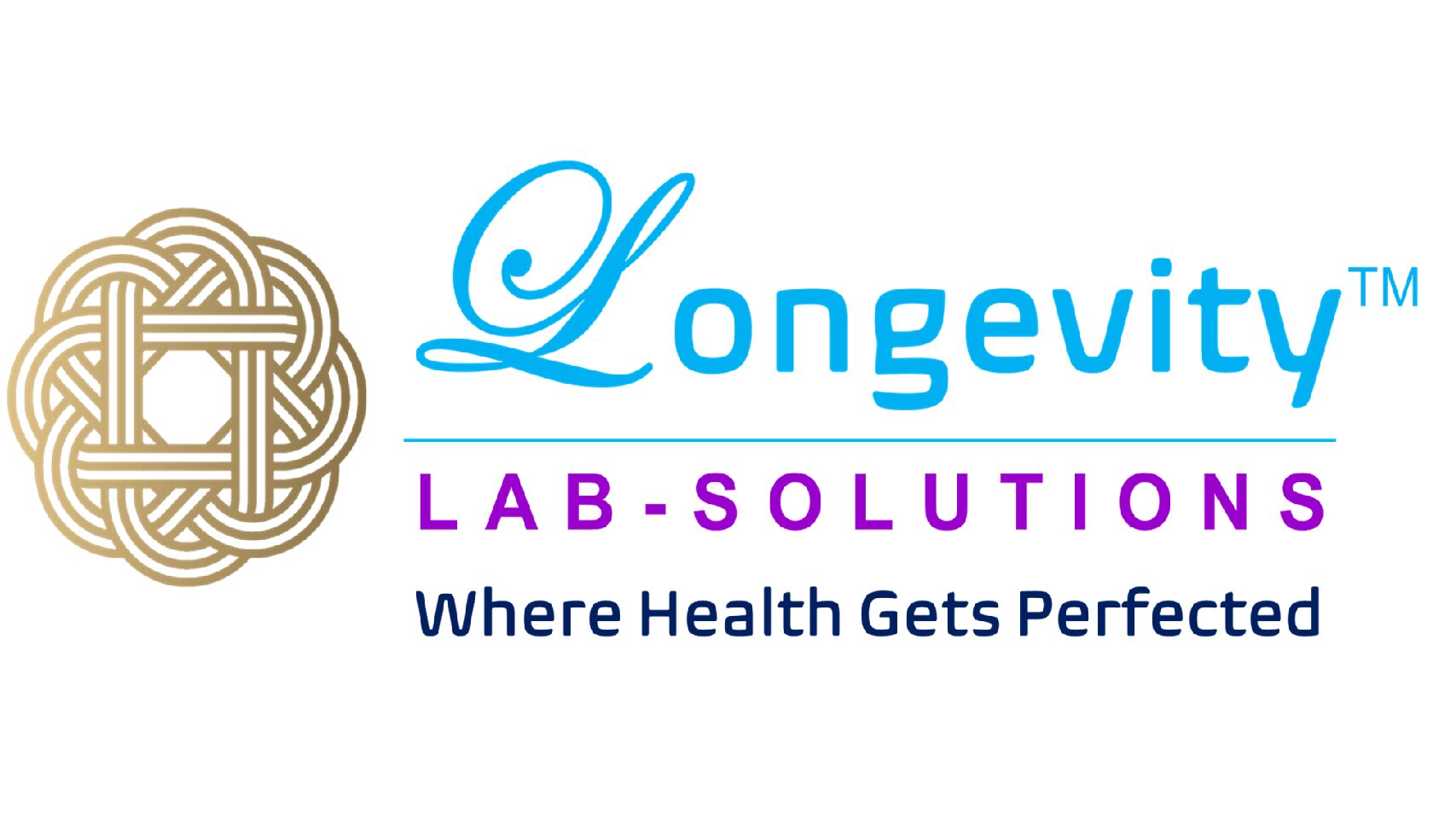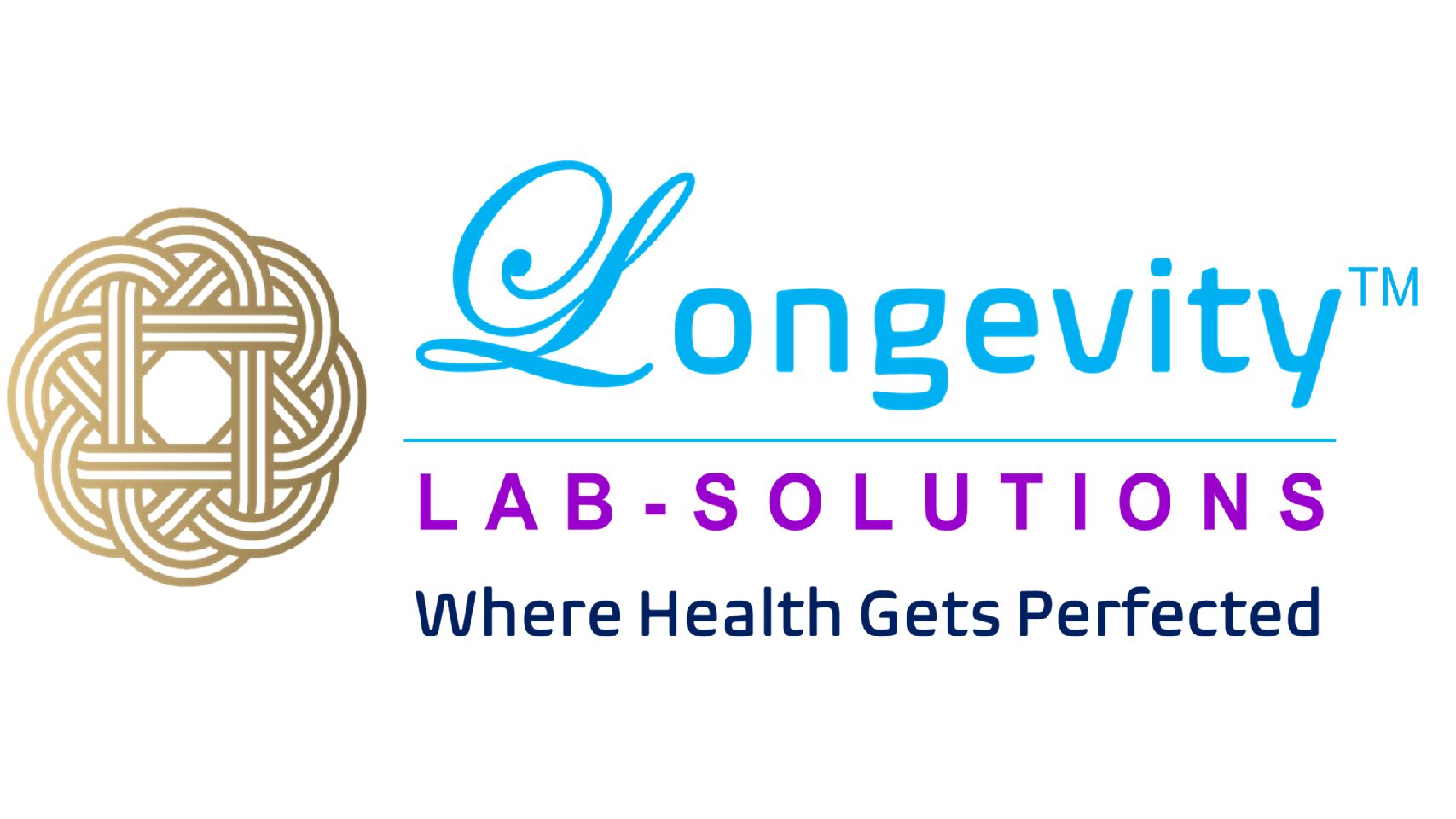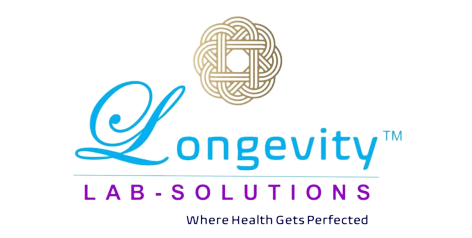IntelliMIND ADHD Blood Test
- Test Requisition Form
- Methylation Chart
- Sample Report
- Blood Collection Video

IntelliMIND ADHD Blood Test -Comprehensive
Attention-Deficit/Hyperactivity Disorder (ADHD) is a neurodevelopmental disorder characterized by persistent patterns of inattention, hyperactivity, and impulsivity that interfere with daily functioning or development. ADHD is not merely a behavioral disorder but can have wide-ranging effects on cognitive function. These cognitive challenges can impact various aspects of life, including academic achievement, occupational performance, and social relationships. Cognitive function refers to a range of mental abilities and processes that allow us to carry out tasks, make decisions, and interact with our surroundings.
Biochemical and metabolic dysregulation are increasingly recognized as significant contributors to the pathology of ADHD. These dysregulations can manifest in various biochemical pathways and metabolic processes, affecting overall brain function, behavior, and physical health. Key areas of interest include oxidative stress, mitochondrial dysfunction, neurotransmitter imbalances, and immune system abnormalities.
The results from IntelliMIND Comprehensive ADHD Blood Test will clearly identify individual deficiencies, enabling the design and implementation of personalized meals, snacks and supplements treatment plans for each child.
90 Analytes Tested
Micronutrients: Vitamin B2 (Riboflavin), Vitamin B6, Folate (Vitamin B9), Methyl Vitamin B12, Vitamin D 25-OH, Iron, Magnesium, Calcium, Potassium, Phosphorous, Copper, Zinc, Selenium, Omega-3 Fatty Acids
Folate Receptor Alpha Autoantibodies (FRAAs)
Inflammation: C-Reactive Protein, Interleukin-1B, Interleukin-6, TNF-Alpha
Neurotransmitters: Serotonin, Dopamine, Gamma-Aminobutyric Acid (GABA), Glutamate, Acetylcholine, Melatonin
Oxidative Stress: Malondialdehyde, Glutathione, 8-Hydroxy-2′-Deoxyguanosine (8-OHdg)
Mitochondria: Adenosine Triphosphate, Lactate/Pyruvate, Reactive Oxygen Species
Hormones: Cortisol, Thyroid Stimulating Hormone, Free Triiodothyronine (T3), Free Thyroxine (T4), Insulin, Insulin-Like Growth Factor-1 (IGF-1)
Gastrointestinal: Secretory Immunoglobulin A (sIgA), Zonulin, Microbial Metabolites (Short-Chain Fatty Acids)
Celiac Disease: Deamidated Gliadin Peptide Antibodies (DGP-IgA and DGP-IgG), Anti-tissue Transglutaminase Antibodies (tTG-IgA and tTG-IgG)
General Health: Complete Metabolic Panel (CMP) 17 analytes, Lipid Panel (6 analytes), Complete Blood Count (CBC) 21 analytes, And Hemoglobin A1c (A1c)
Price: $599.00

IntelliMIND Autism Blood Test - Basic
Biochemical and metabolic dysregulation are increasingly recognized as significant contributors to the pathology of autism spectrum disorder (ASD). These dysregulations can manifest in various biochemical pathways and metabolic processes, affecting overall brain function, behavior, and physical health. Key areas of interest include oxidative stress, mitochondrial dysfunction, neurotransmitter imbalances, and immune system abnormalities.
The results from IntelliMIND Basic Autism Blood Tests will clearly identify individual deficiencies, enabling the design and implementation of personalized meals, snacks and supplements treatment plans for each child.
55 Analytes Tested
Micronutrients: Folate (Vitamin B9), Methyl Vitamin B12, Vitamin D 25-OH, Iron, Magnesium, Calcium, Potassium
Folate Receptor Alpha Autoantibodies (FRAAs)
Inflammation: C-Reactive Protein
Neurotransmitters: Serotonin, Dopamine, Gamma-Aminobutyric Acid (GABA), Glutamate, Acetylcholine, Melatonin
Oxidative Stress: Malondialdehyde, Glutathione
Mitochondria: Adenosine Triphosphate
Hormones: Cortisol, Thyroid Stimulating Hormone, Free Triiodothyronine (T3), Free Thyroxine (T4), Insulin
Gastrointestinal: Secretory Immunoglobulin A (sIgA), Zonulin
Celiac Disease: Deamidated Gliadin Peptide Antibodies (DGP-IgA and DGP-IgG), Anti-tissue Transglutaminase Antibodies (tTG-IgA and tTG-IgG)
General Health: Complete Metabolic Panel (CMP) 17 analytes, Lipid Panel (6 analytes), And Hemoglobin A1c (A1c)
Price: $299.00
Biochemical Assessment
Micronutrients: Micronutrients play a significant role in brain development and function, and imbalances or deficiencies in these nutrients can contribute to the pathophysiology of ASD. Ensuring adequate levels of these vitamins and minerals through diet or supplementation may help mitigate some symptoms associated with ASD.
Analytes measured: Vitamin B2 (Riboflavin), Vitamin B6, Folate (Vitamin B9), Methyl Vitamin B12, Vitamin D 25-OH, Iron, Magnesium, Calcium, Potassium, Phosphorous, Copper, Zinc, Selenium
- Riboflavin: is essential for energy production, cellular function, and metabolism of fats, drugs, and steroids. It also plays a role in the conversion of vitamin B6 and folate into their active forms.
- Vitamin B6: is critical for neurotransmitter synthesis, particularly serotonin, dopamine, and GABA. It also plays a role in the metabolism of homocysteine to cysteine. Low levels of vitamin B6 have been associated with behavioral symptoms in ASD, such as irritability and hyperactivity. Some studies suggest that supplementation with vitamin B6, often combined with magnesium, may improve these symptoms.
- Folate: is crucial for DNA synthesis, repair, and methylation, as well as neurotransmitter production. Folate deficiency during pregnancy has been associated with an increased risk of ASD in offspring. Additionally, some children with ASD have been found to have autoantibodies against folate receptors, potentially leading to cerebral folate deficiency.
- Methyl Vitamin B12 (Methylcobalamin): is the active form of vitamin B12, playing a direct role in the methylation of homocysteine to methionine. Some studies suggest that Methyl B12 supplementation can improve behavioral and cognitive functions in children with ASD, possibly by enhancing methylation capacity.
- Vitamin D 25-OH: is vital for calcium homeostasis, bone health, and immune function. It also influences brain development and function. Several studies have reported lower levels of vitamin D in children with ASD. Vitamin D deficiency during pregnancy and early childhood may be associated with an increased risk of developing ASD.
- Iron: is crucial for oxygen transport, DNA synthesis, and neurotransmitter function. Iron deficiency is common in children with ASD and may exacerbate behavioral issues, cognitive impairments, and sleep disturbances. Iron supplementation has been shown to improve some symptoms in ASD.
- Magnesium: is involved in over 300 enzymatic reactions, including those related to neurotransmitter release, muscle function, and energy production. Low magnesium levels are frequently reported in children with ASD, and supplementation has been associated with improvements in hyperactivity, irritability, and attention.
- Calcium: is essential for bone health, muscle contraction, neurotransmitter release, and cell signaling. Calcium signaling is crucial for brain function, and disruptions in calcium homeostasis have been implicated in ASD. Some children with ASD may have lower dietary calcium intake, potentially affecting their development.
- Potassium: is vital for maintaining cellular function, particularly in nerve transmission and muscle contraction. Potassium is vital for maintaining cellular function, particularly in nerve transmission and muscle contraction.
- Phosphorus: is essential for the formation of bones and teeth, as well as for energy production and cellular function. Adequate phosphorus levels are important for overall health, but specific research on phosphorus levels in ASD is limited. However, since phosphorus is crucial for energy metabolism, imbalances may contribute to metabolic and neurological dysfunctions in ASD.
- Copper: is involved in the formation of red blood cells, iron absorption, and the synthesis of neurotransmitters. Imbalances in copper levels, particularly elevated copper levels, have been reported in some children with ASD. High copper levels can affect brain function and have been linked to oxidative stress and neurodevelopmental disorders.
- Zinc: is essential for immune function, DNA synthesis, and neurotransmitter function. Zinc deficiency is common in children with ASD and may contribute to immune dysfunction, oxidative stress, and behavioral symptoms. Supplementation of zinc has shown potential benefits in reducing some ASD symptoms.
- Selenium: is a key component of antioxidant enzymes that protect cells from oxidative damage. Selenium levels have been found to be lower in some children with ASD, potentially contributing to increased oxidative stress and related neurological damage.
Folate Receptor Alpha Autoantibodies (FRAAs):
FRAAs are antibodies produced by the immune system that bind to the folate receptor alpha. When these autoantibodies bind to FRα, they can block or reduce the transport of folate into the brain, potentially leading to cerebral folate deficiency. Research has found that a significant number of children with ASD have circulating FRAAs. These autoantibodies can interfere with folate transport to the brain, leading to reduced folate availability in critical areas involved in cognition and behavior.
Inflammation: Analytes measured: C-Reactive Protein, Interleukin-1B, Interleukin-6, TNF-Alpha
- C-Reactive Protein (CRP): is an acute-phase protein produced by the liver in response to inflammation. It is commonly used as a biomarker to assess systemic inflammation and has been studied in various neurological and psychiatric disorders ASD. Research has shown that individuals with ASD often have elevated levels of CRP, indicating a state of chronic low-grade inflammation. This persistent inflammation is believed to play a role in the pathophysiology of ASD, potentially contributing to the development and exacerbation of behavioral and cognitive symptoms. Elevated CRP levels in children with ASD have been associated with more severe symptoms, including increased irritability, hyperactivity, and social withdrawal.
- Interleukin-1 Beta (IL-1β): is a pro-inflammatory cytokine that plays a crucial role in the body’s immune response. It is involved in the regulation of inflammatory processes and is produced in response to infections, injuries, and other immune challenges. Elevated IL-1β levels in individuals with ASD are thought to contribute to neuroinflammation, which can affect brain development and function, potentially leading to the behavioral and cognitive symptoms associated with ASD. Neuroinflammation mediated by cytokines like IL-1β may disrupt neural connectivity, synaptic plasticity, and neurotransmitter systems, all of which are crucial for normal brain function. The relationship between IL-1β and ASD supports the hypothesis that immune system abnormalities, including chronic inflammation, play a significant role in the development and progression of ASD.
- Interleukin-6 (IL-6): is a multifunctional cytokine that plays a crucial role in the immune system, regulating inflammation, immune responses, and hematopoiesis. It acts both as a pro-inflammatory cytokine and an anti-inflammatory myokine. Elevated IL-6 levels have been correlated with the severity of ASD symptoms and have been associated with increased irritability, social withdrawal, and communication challenges.
- Tumor Necrosis Factor-alpha (TNF-α): is a pro-inflammatory cytokine that plays a central role in mediating the immune response, including inflammation, cell death, and the activation of other immune cells. Studies have consistently reported higher levels of TNF-α in children with ASD compared to neurotypical controls. This elevation is often associated with increased inflammatory activity within the brain, which can affect neural development and function.
Neurotransmitter Levels: Neurotransmitters are chemical messengers that transmit signals across synapses between neurons in the brain. They play crucial roles in regulating mood, behavior, cognition, and overall brain function. In ASD, imbalances in various neurotransmitter systems have been implicated in the disorder’s pathophysiology, potentially contributing to the social, communication, and behavioral challenges characteristic of ASD.
Analytes measured: Serotonin, Dopamine, Gamma-Aminobutyric Acid (GABA), Glutamate, Acetylcholine
- Serotonin (5-HT): is involved in regulating mood, anxiety, sleep, appetite, and social behavior. It also plays a role in early brain development, influencing neurogenesis and synaptic plasticity. Elevated levels of serotonin (hyperserotonemia) have been found in the blood of a significant subset of individuals with ASD. Abnormal serotonin signaling is thought to contribute to the social and behavioral symptoms of ASD, such as anxiety, repetitive behaviors, and difficulties with social interaction.
- Dopamine: is critical for regulating reward, motivation, attention, and motor control. It is also involved in learning and memory. Dysregulation of the dopamine system has been implicated in ASD, particularly in relation to repetitive behaviors, attention deficits, and the reward system. Abnormal dopamine signaling may contribute to the rigid and repetitive behaviors seen in ASD, as well as difficulties with motivation and social interaction.
- Gamma-Aminobutyric Acid (GABA): is the primary inhibitory neurotransmitter in the brain, responsible for reducing neuronal excitability and maintaining the balance between excitation and inhibition in the brain. Research suggests that individuals with ASD may have an imbalance in the GABAergic system, leading to a reduction in inhibitory signaling. This imbalance could result in increased neural excitability, contributing to sensory processing issues, anxiety, and seizures, which are more common in individuals with ASD.
- Glutamate: is the primary excitatory neurotransmitter in the brain, involved in synaptic plasticity, learning, and memory. Altered glutamatergic signaling has been observed in individuals with ASD, with evidence suggesting both hypo- and hyperfunctioning of glutamate receptors in different brain regions. These disruptions may contribute to the cognitive and social impairments associated with ASD, as well as to the increased prevalence of epilepsy in this population.
- Acetylcholine: is involved in attention, learning, memory, and the regulation of the autonomic nervous system. Some studies suggest that individuals with ASD may have dysregulation in the cholinergic system, which could impact cognitive processes such as attention and learning. Abnormalities in acetylcholine signaling may also contribute to sensory processing differences in ASD.
Oxidative Stress: Analytes measured: Malondialdehyde, (MDA), Glutathione, 8-Hydroxy-2′-Deoxyguanosine (8-Ohdg)
- Malondialdehyde (MDA): is a byproduct of lipid peroxidation, a process where reactive oxygen species (ROS) cause damage to cell membranes by attacking lipids. MDA is widely used as a biomarker to measure oxidative stress levels in the body.
- Glutathione (GSH) and Glutathione Disulfide (GSSG) Ratio: Glutathione is a major antioxidant that protects cells from oxidative damage by neutralizing ROS. The ratio of reduced glutathione (GSH) to its oxidized form (GSSG) is a critical indicator of cellular redox balance and oxidative stress. Individuals with ASD often exhibit lower levels of GSH and a decreased GSH/GSSG ratio, indicating impaired antioxidant defense and increased oxidative stress. This imbalance suggests that individuals with ASD may be more vulnerable to oxidative damage, contributing to the disorder’s pathology.
- 8-Hydroxy-2′-deoxyguanosine (8-OHdG): is a marker of oxidative damage to DNA, resulting from the interaction of ROS with DNA molecules. It is commonly used as a biomarker for oxidative stress and oxidative DNA damage. Higher levels of 8-OHdG have been reported in individuals with ASD, suggesting that oxidative damage to DNA may play a role in the development of the disorder. This damage could potentially impact gene expression and contribute to the neurological abnormalities observed in ASD.
Mitochondria Function: Analytes measured: Reactive Oxygen Species, Adenosine Triphosphate
- Reactive Oxygen Species (ROS): are highly reactive molecules containing oxygen, such as superoxide anion, hydrogen peroxide, and hydroxyl radicals. While ROS play essential roles in cell signaling and homeostasis, excessive ROS production can lead to oxidative stress, damaging cellular components like DNA, proteins, and lipids. Their excessive production in individuals with ASD can lead to significant oxidative stress and cellular damage. This oxidative stress is associated with neuroinflammation, mitochondrial dysfunction, and abnormal neurodevelopment, all of which may contribute to the behavioral and cognitive symptoms of ASD.
- Adenosine Triphosphate (ATP): is the primary energy currency of the cell, playing a crucial role in numerous biological processes, including cellular respiration, signal transduction, and muscle contraction. ATP is produced primarily in the mitochondria through oxidative phosphorylation, and it is essential for maintaining cellular function, especially in energy-demanding organs like the brain. Studies have reported lower ATP levels in individuals with ASD. Reduced ATP availability can impair various cellular processes, particularly those involved in maintaining synaptic function and neuronal signaling, which are critical for learning, memory, and behavior.
Hormones: Hormones play a vital role in regulating a wide range of physiological processes, including growth, metabolism, stress responses, and social behaviors. Several hormones have been studied for their potential involvement in the pathophysiology of ASD. Abnormal hormone levels and signaling may contribute to the behavioral, cognitive, and social challenges associated with ASD.
Analytes measured: Cortisol, Melatonin, Thyroid Stimulating Hormone, Free Triiodothyronine (T3), Free Thyroxine (T4)
- Cortisol: is a stress hormone produced by the adrenal glands in response to stress. It is involved in the body’s “fight or flight” response and helps regulate metabolism, immune function, and energy levels. Research has shown that individuals with ASD may have altered cortisol responses to stress. Some studies suggest that children with ASD may exhibit elevated baseline cortisol levels, while others indicate a blunted cortisol response to stress. These abnormalities in cortisol regulation may be linked to anxiety, sensory sensitivities, and difficulties with stress management in ASD.
- Melatonin: is a hormone produced by the pineal gland that regulates sleep-wake cycles. It is crucial for maintaining circadian rhythms and promoting sleep. Many individuals with ASD experience sleep disturbances, and melatonin dysregulation has been identified as a contributing factor. Studies have found lower melatonin levels in individuals with ASD, and melatonin supplementation is often used to help improve sleep patterns in this population. Improved sleep can have positive effects on behavior, mood, and cognitive function in individuals with ASD.
- Thyroid Hormones: thyroid stimulating hormone, thyroxine (T4) and triiodothyronine (T3), are essential for brain development, metabolism, and overall growth. They regulate the rate of energy use, protein production, and sensitivity to other hormones. Some research has suggested that individuals with ASD may have abnormal thyroid hormone levels or thyroid function. Thyroid hormones are critical for neurodevelopment, and disruptions in thyroid function during early development could potentially contribute to the cognitive and behavioral symptoms of ASD.
Gastrointestinal Health and Celiac Disease: Gastrointestinal (GI) health is an area of significant concern in ASD, with a growing body of research suggesting a strong connection between GI issues and the behavioral, cognitive, and emotional symptoms of ASD.
Many individuals with ASD experience a range of GI problems, including constipation, diarrhea, abdominal pain, and bloating. These issues can significantly impact the quality of life and may contribute to the severity of ASD symptoms. Some studies suggest that a subset of individuals with ASD exhibit elevated levels of celiac markers or non-celiac gluten sensitivity, while others find no significant association. Celiac disease is an autoimmune disorder in which the ingestion of gluten (a protein found in wheat, barley, and rye) triggers an immune response that damages the lining of the small intestine. Some families and clinicians have reported improvements in behavior and gastrointestinal symptoms in children with ASD following the adoption of a gluten-free diet. Biomarkers for GI issues and Celiac disease in individuals with ASD can provide valuable insights into the underlying mechanisms of the disorder and help guide personalized treatment approaches. These biomarkers include indicators of gut inflammation, microbiome composition, immune function, gluten sensitivity and metabolic activity.
Analytes measured: Secretory Immunoglobulin A (sIga), Zonulin, Microbial Metabolites (Short-Chain Fatty Acids), Anti-tissue Transglutaminase Antibodies (tTG-IgA and IgG), Deamidated Gliadin Peptide Antibodies (DGP-IgA and IgG).
- Secretory Immunoglobulin A (sIgA) is an antibody found in mucosal secretions, including the gut, where it plays a crucial role in immune defense by neutralizing pathogens and maintaining gut barrier function. Abnormal levels of sIgA have been reported in individuals with ASD, with some studies indicating reduced sIgA levels, which may suggest compromised mucosal immunity. This reduction in sIgA could contribute to increased intestinal permeability (“leaky gut”) and chronic GI inflammation in ASD.
- Zonulin: is a protein that modulates the permeability of tight junctions between cells in the gut lining. Elevated zonulin levels are associated with increased intestinal permeability, commonly referred to as “leaky gut.” Elevated zonulin levels have been observed in individuals with ASD, suggesting that they may have increased intestinal permeability. This “leaky gut” could allow toxins, allergens, and bacteria to enter the bloodstream, potentially triggering systemic inflammation and exacerbating ASD symptoms.
- Microbial Metabolites (e.g., Short-Chain Fatty Acids): Gut microbiota produce various metabolites, including short-chain fatty acids (SCFAs) like butyrate, propionate, and acetate, which play important roles in gut health, immune function, and energy metabolism. Altered levels of SCFAs have been reported in individuals with ASD. For example, some studies have found elevated levels of propionate, which has been linked to behavioral symptoms such as repetitive behaviors. These findings suggest that dysbiosis (microbial imbalance) in the gut may contribute to both GI and behavioral symptoms in ASD.
- Anti-tissue Transglutaminase Antibodies (tTG-IgA and IgG): The most commonly used marker for celiac disease, this test measures the presence of antibodies against tissue transglutaminase, an enzyme that is involved in the repair of the intestinal lining. Elevated levels of tTG-IgA are strongly indicative of celiac disease.
- Deamidated Gliadin Peptide Antibodies (DGP-IgA and DGP-IgG): These antibodies are directed against deamidated gliadin, a component of gluten. This test can be particularly useful in individuals with IgA deficiency or in cases where the tTG-IgA test is negative but celiac disease is still suspected.
General Health Metabolic Profiles: Complete Metabolic Panel (CMP), Complete Blood Count (CBC), and Hemoglobin A1c (A1c) are common laboratory tests that provide important information about an individual’s overall health and can be relevant in understanding certain aspects of Autism Spectrum Disorder (ASD). While these tests are not specific to ASD, they can help identify underlying medical conditions or metabolic issues that may be associated with or exacerbate ASD symptoms.
- The CMP is a blood test that measures 17 different substances and ratios in your blood, providing information about your body’s chemical balance and metabolism. The test includes measurements of electrolytes (sodium, potassium, chloride, bicarbonate), kidney function (blood urea nitrogen [BUN] and creatinine), liver function (alanine aminotransferase [ALT], aspartate aminotransferase [AST], alkaline phosphatase [ALP], and bilirubin), glucose levels, and proteins (albumin and total protein).
- The CBC is a blood test that evaluates the overall health of an individual by measuring different components of the blood, including red blood cells (RBCs), white blood cells (WBCs), hemoglobin, hematocrit, and platelets. It can help detect a variety of disorders, such as infections, anemia, and immune system disorders.
- The A1c test measures the average blood glucose levels over the past two to three months by assessing the percentage of hemoglobin that is glycated (coated with sugar). It is commonly used to diagnose and monitor diabetes and prediabetes.
Enhancing Cognitive Function
Enhancing cognitive function is a broad goal that can be approached through various means. Cognitive function encompasses processes such as memory, attention, problem-solving, language, and decision-making. Here’s a summary of some strategies that have been shown to support or enhance cognitive function:
Physical Exercise: Regular physical exercise can improve blood flow to the brain and promote the growth of new neurons. Activities like aerobics, strength training, and even simple walking have been shown to enhance cognitive functions.
Mental Exercise: Engaging in mentally stimulating activities like puzzles, reading, or learning new skills can help to keep the brain active and may delay cognitive decline.
Healthy Diet: Eating a balanced diet rich in nutrients, particularly omega-3 fatty acids, antioxidants, and vitamins, can support brain health. Diets like the Mediterranean diet are often cited for their potential cognitive benefits.
Sleep: Adequate and quality sleep is essential for cognitive function. Poor sleep can impair memory, creativity, and critical thinking skills.
Stress Management: Chronic stress can have detrimental effects on the brain. Mindfulness, meditation, and other stress-reducing techniques can help in maintaining cognitive function.
Social Engagement: Maintaining social connections and engaging in social activities can help to keep the mind active and stimulated.
Avoiding Toxins: Minimizing exposure to harmful substances like excessive alcohol and drugs that can negatively impact cognitive function.
Medical Management: Managing chronic medical conditions like hypertension and diabetes is essential, as these can affect brain health if not controlled.
Nootropics and Supplements: Some people turn to nootropic supplements to enhance cognitive function, although the evidence supporting these can vary greatly. Consultation with healthcare providers is crucial before taking any supplements.
Cognitive Training Programs: There are software and programs designed specifically to improve cognitive skills. While some studies suggest benefits, results may vary, and further research is needed.
Avoid Multitasking: Focusing on one task at a time rather than juggling multiple tasks can improve the quality of work and cognitive efficiency.
Hydration: Staying well-hydrated is essential for overall health, including cognitive function.
Mindfulness and Meditation: Practices that promote mindfulness and meditation may improve attention and cognitive flexibility.
Monitoring and Treatment for Mental Health Conditions: Depression, anxiety, and other mental health issues can impact cognitive function, so seeking appropriate treatment is vital.
Enhancing cognitive function often involves a multifaceted approach that integrates lifestyle, medical, nutritional, and possibly pharmacological strategies. Consulting with healthcare professionals like a neurologist, psychologist, or nutritionist who specialize in cognitive health can provide individualized recommendations based on personal health status and goals.
Test Details
- SST tube of blood
- Lavender top tube of Blood
24 – 72 hours
Price: $99.00


